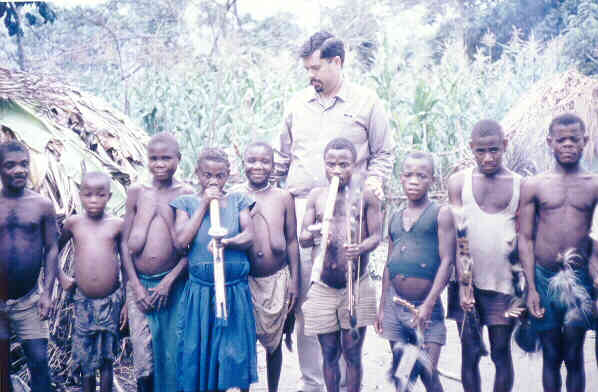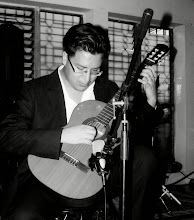Thoughts after listening Pigmy Music
By Carlos Murgueitio Roa
Essay made for the University of Pennsylvania
Traditional music has always an inherent value of innocence and purity in it. Maybe because it is not altered by any kind of technological device, or the stress of modern-day life. Pigmy music is no exception. While listening to it for the first time, you could hear the story and heritage of an ethnical group that has been largely misunderstood, abused and marginalized in many ways by the most “developed” (and fittest, if we see it through a Darwinian perspective) races. You could hear the voice of people who actually are so rooted to nature, that they consider noise an offense to the rainforest, you could hear the sounds of people who actually use sound as a way of doing certain things, be it hunting, talking in a social situation, or dancing, according to the sound generated by them.
To me, the quality of Pigmy music is almost child-like, it’s something I felt while listening to hindewhu. Even if hindenwhu represents the return from hunting, it reminds me of childhood. Imagine you took your bicycle and went out of your house and returned with a big smile after some weird adventure or experience, be it gathering fruits, meeting other kids, your first kiss, anything. The innocence of children and the joy of coming back home is something I could hear in hindenwhu, and considering that Pigmy society is egalitarian, it definitely must be a joyful experience to go and work with your friends, with a big smile in your face, and return home to meet your cherished ones.
It’s good that our “Civilized Nations” know about this kind of musical manifestations. But what happens when traditional music is took out of its original context? Being myself a musician, composer and music student, I certainly find inspirational when another musician finds sounds like this, produced by traditional instruments or certain phonetics and incorporates them into their own works, because in my opinion, it’s a way to break cultural barriers, and it also exposes this wonderful sounds to a larger group of people. Of course, I believe it is the artist’s responsibility to give credit to the real creators of the sounds, chants, whatever sound they find, in case he or she uses samples from it.
If I were a pigmy musician, I’d be definitely happy to hear my music and sounds played though the world, because listening to a cultural manifestation is a way of understanding, and of course, they would feel less marginalized by their “fittest” counterparts. Their egalitarian vision of society is present as well in their sound, and as a non-pigmy musician, I learned from listening to hindenwhu that you should give space to both your technique and your imagination, and you could create an amazing, non-describable mysterious sound.


No comments:
Post a Comment